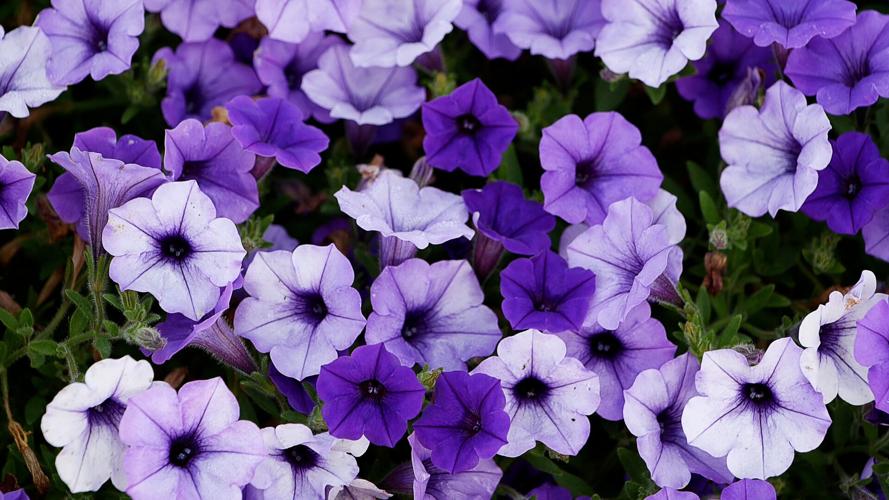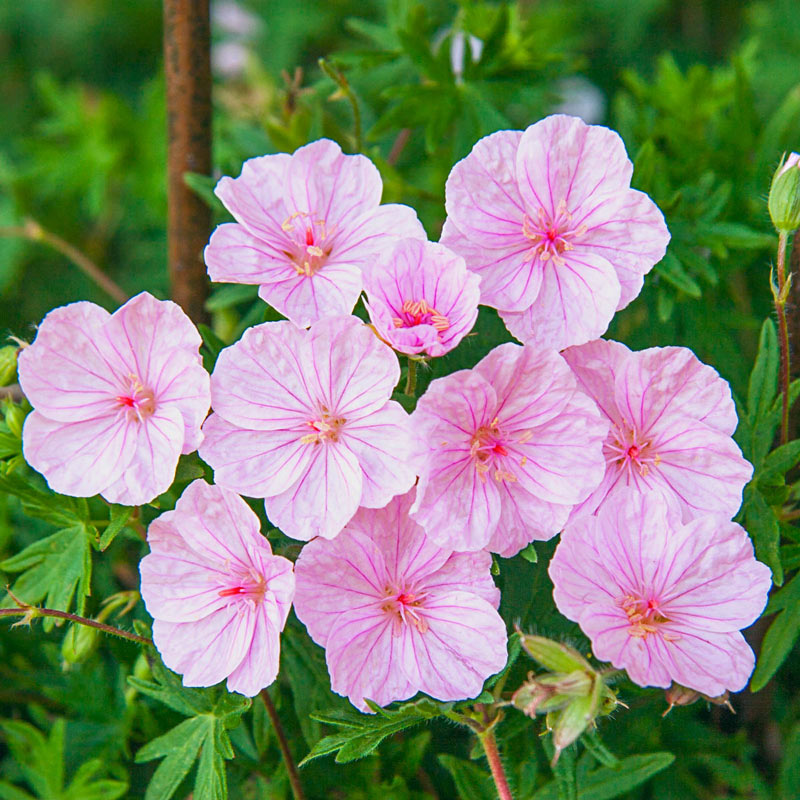Flowers can represent joyful emotions like love and friendship. However, throughout history, certain flowers have taken on darker meanings that represent negative ideas or serve as warnings. Understanding the potentially ominous symbolism behind some blooms can help avoid accidentally offending someone or coming across the wrong way by gifting the wrong arrangement. Here are some of the top flowers that have developed negative meanings over time.

Flower Meanings Negative: Deadly and Poisonous
Some flowers have developed negative connotations simply because they are poisonous or downright deadly if ingested. These are blooms to obviously avoid for bouquets or floral decorations.
Oleander
The Oleander flower, scientifically known as Nerium oleander, is a beautiful and delicate flower that is native to the Mediterranean region. It is a popular ornamental plant due to its attractive flowers and evergreen foliage. However, despite its beauty, the Oleander has a dark side and is associated with negative meanings.
One of the most significant negative aspects of the Oleander flower is its extreme toxicity. All parts of the plant, including the flowers, leaves, stems, and even the sap, contain toxic compounds called cardiac glycosides. These compounds can cause severe poisoning if ingested, and in some cases, even lead to death. This toxicity makes the Oleander a dangerous plant to have around, especially for children and pets.
In addition to its toxic properties, the Oleander has a long history of being used as a deadly poison. In ancient times, it was commonly used as a means of suicide or murder. The plant’s toxic properties were well-known, and it was often used to eliminate enemies or rivals. This association with death and violence has given the Oleander a negative reputation throughout history.

Moreover, the Oleander flower also represents caution, warning, and danger. Due to its toxicity, the plant serves as a warning to those who come across it. Its bright and vibrant flowers may be alluring, but they also serve as a reminder of the potential danger that lies within. In some cultures, the Oleander is considered a symbol of caution, and it is believed that having this flower in one’s home can bring bad luck.
The Oleander flower carries a negative connotation due to its extreme toxicity, historical use as a deadly poison, and representation of caution, warning, and danger. While it may be a visually appealing plant, it is essential to handle it with caution and keep it out of reach of children and pets. Its negative associations serve as a reminder of the potential harm that can come from underestimating the dangers of nature.
White Baneberry
Flowers have been used for centuries to convey various emotions and messages. Each flower has its own unique meaning, whether it be positive or negative. In this case, we will be discussing the negative meaning of the White Baneberry flower.
The White Baneberry, also known as Doll’s Eyes, is a small perennial plant that produces clusters of white flowers in the spring. These flowers are followed by bright red berries that resemble human eyes, hence the name “Doll’s Eyes”. While the flower itself may seem innocent and delicate, it holds a much darker meaning.
One of the most significant negative aspects of the White Baneberry is its highly poisonous berries and roots. In fact, the entire plant is toxic and can be fatal if ingested. This is due to the presence of cardiogenic toxins, which can cause cardiac arrest and respiratory failure. As such, the White Baneberry is often associated with death and danger.

In addition to its toxicity, the White Baneberry is also associated with ill omens. This means that the flower is believed to bring bad luck or misfortune to those who encounter it. This belief may stem from the fact that the plant is often found in dark and damp areas, such as forests and woodlands, which are traditionally associated with supernatural beings and negative energies.
Another negative meaning associated with the White Baneberry is the need for caution and care when interacting with something or someone. Just like the plant itself, which can be deadly if handled without proper precautions, this flower serves as a warning to be careful and mindful in our actions and relationships. It reminds us to approach situations with caution and to be aware of potential dangers.
The White Baneberry holds a negative connotation due to its poisonous nature and association with death and ill omens. However, it also serves as a reminder to be cautious and mindful in our interactions, making it a powerful symbol with a deeper meaning. So, the next time you come across this delicate-looking flower, remember its negative connotations and use it as a reminder to be careful and mindful in your actions.
Deadly Nightshade
Flowers have long been used as symbols to convey different meanings and emotions. While many flowers are associated with positive meanings such as love, happiness, and friendship, there are also some that carry negative connotations. One such flower is the deadly nightshade, which has a dark and ominous history.
The deadly nightshade, also known as Atropa belladonna, is a perennial plant that is native to Europe, Asia, and North Africa. It is characterized by its purple bell-shaped flowers and shiny black berries. However, despite its beautiful appearance, the entire plant is highly toxic and has been historically used as a poison.
Due to its poisonous nature, the deadly nightshade has come to symbolize darkness, death, and evil. In fact, it is often referred to as the “devil’s herb” or “witch’s berry” due to its association with witchcraft and sorcery. In ancient times, it was believed that witches would use the plant to make potions and cast spells, adding to its sinister reputation.

In addition to its associations with witchcraft, the deadly nightshade also conveys deep distrust, hatred, or the presence of something sinister. This is likely due to its toxic properties and the fact that it can cause hallucinations, delirium, and even death if ingested in large quantities. As a result, the flower has become a symbol of caution and warning, serving as a reminder to be wary of things that may seem alluring but can ultimately be harmful.
Furthermore, the deadly nightshade has been used in literature and art to represent themes of betrayal, deception, and danger. Its dark and mysterious appearance makes it a perfect symbol for these negative concepts, adding depth and complexity to various works of fiction.
The deadly nightshade is a flower with a rich and intriguing history. While its toxicity may make it dangerous, its symbolism adds a layer of intrigue and fascination. It serves as a reminder that not everything that appears beautiful is necessarily good, and that there can be hidden dangers lurking beneath the surface.
Flower Meanings Negative: Negative Emotions
Beyond physical harm, flowers can also embody and communicate more metaphorical negative ideas. Beware of these blooms’ symbolic meanings when selecting arrangements.
Yellow Carnations
Yellow carnations, traditionally, have been associated with negative meanings such as disdain, disappointment, and rejection. These flowers are often given to convey the message of rejecting someone’s affection or advances. The bright yellow color of the carnation may seem cheerful and uplifting at first glance, but it holds a deeper meaning that is not always positive.
One of the most common negative meanings associated with yellow carnations is disdain. This refers to a feeling of contempt or disgust towards someone or something. When given as a gift, yellow carnations can be seen as a way of expressing one’s disapproval or dislike towards the recipient. It can also be used to show disrespect or disregard for someone’s feelings or actions.
Another negative meaning associated with yellow carnations is disappointment. This can refer to a feeling of sadness or dissatisfaction when expectations are not met. When given as a gift, yellow carnations can be seen as a way of expressing disappointment in someone or something. It can also be used to convey a sense of regret or letdown in a relationship or situation.

Rejection is another negative meaning commonly associated with yellow carnations. This can refer to the act of refusing or declining someone’s advances or affections. When given as a gift, yellow carnations can be seen as a way of rejecting someone’s love or friendship. It can also be used to convey the end of a relationship or the discontinuation of a bond between two people.
In some cultures, yellow carnations are also associated with infidelity and betrayal. This stems from the belief that the bright yellow color symbolizes deceit and unfaithfulness. In this context, yellow carnations can represent a broken trust or a betrayal of loyalty.
Yellow carnations hold a negative connotation and are not usually given as a gift unless the intention is to convey a negative message. However, it is important to note that flower meanings can vary depending on the culture and context in which they are given. It is always best to consider the recipient’s cultural background and the relationship between the giver and receiver before choosing a flower with a potentially negative meaning.
Orange Lilies
Orange lilies are a type of flower that have been associated with negative meanings. While many flowers are often seen as symbols of love, happiness, and positivity, orange lilies carry a much different connotation. In this article with Impeccable Nest, we will explore the negative meanings associated with orange lilies and what they may symbolize.
Firstly, orange lilies have been linked to feelings of hatred, pride, and hostility. These emotions are often seen as negative and can cause tension and conflict in relationships. The bright and bold color of the lily may initially seem cheerful and uplifting, but when combined with these negative associations, it can create a stark contrast.
Furthermore, orange lilies are said to signal deep-seated anger, contempt, or hatred. This means that the flower may represent emotions that are buried deep within a person, rather than just surface-level feelings. This could be a warning sign for individuals who receive orange lilies from someone else, as it may indicate that there is unresolved anger or resentment towards them.
In addition, orange lilies can also mark a relationship filled with betrayal, pride, and hostility. This could refer to a romantic relationship, friendship, or even a family dynamic. The presence of orange lilies in this context may suggest that there are underlying issues within the relationship that need to be addressed. It could also serve as a reminder of past hurts and betrayals.
It is important to note that these negative meanings associated with orange lilies are not set in stone. They may vary depending on cultural beliefs and personal interpretations. However, it is worth considering these potential meanings when giving or receiving orange lilies.
In some cases, orange lilies may also be used as a way to express negative feelings towards someone. For example, if someone is feeling angry or resentful towards another person, they may give them orange lilies as a subtle way to communicate their emotions without directly addressing them. This can be a passive-aggressive way of expressing negative feelings and may not always be well-received.
Orange lilies have been associated with negative meanings such as hatred, pride, and hostility. They may signal deep-seated anger or resentment and can mark a relationship filled with betrayal and negative emotions. While these meanings may not apply to every situation, it is important to be aware of them when giving or receiving orange lilies. It is also essential to communicate openly and honestly in relationships to avoid any misunderstandings or hurt feelings.
Petunias
Petunias are a type of flower that have been traditionally associated with negative meanings. While they may be beautiful and colorful, their symbolism can convey anger and resentment. This is due to the fact that petunias have been used for centuries to communicate irritation or annoyance towards someone.
One of the main reasons why petunias are seen as negative flowers is because of their appearance. They have a trumpet-like shape with long, thin petals that can resemble a frown. This physical characteristic has led people to associate them with negative emotions such as anger and resentment.
In addition to their appearance, petunias have also been used in various cultures to warn others about harboring bitterness or resentment. This is because the flower has a strong scent that can be overpowering and unpleasant. In some cases, it has been believed that the scent of petunias can even cause headaches or nausea, further reinforcing their negative connotations.

Furthermore, the color of petunias can also play a role in their negative symbolism. While they come in a variety of colors, including pink, purple, and white, they are most commonly associated with shades of red and purple. These colors are often associated with passion and intensity, which can easily turn into anger and resentment if not properly managed.
It is important to note that the negative meanings associated with petunias are not universal and can vary depending on cultural beliefs and personal interpretations. However, it is clear that these flowers have a long history of being used to convey negative emotions and warnings.
Petunias have a negative symbolism that is deeply rooted in their appearance, scent, and cultural associations. They are often seen as a warning sign for anger and resentment, and their use in communication has been prevalent for centuries. While they may still be appreciated for their beauty and vibrant colors, it is important to be aware of their negative connotations and use them appropriately.
Geraniums
Geraniums are a type of flower that have been used for centuries to convey various meanings and emotions. While they are often associated with positive connotations such as love, happiness, and friendship, they also have negative meanings attached to them. In particular, geraniums have been known to signify stupidity, folly, or foolishness.
One possible reason for this negative association is the fact that geraniums are relatively easy to grow and maintain. This may lead some people to view them as common or unremarkable, which can be seen as a reflection of someone’s lack of intelligence or good judgment. Additionally, geraniums are not particularly showy or flashy flowers, which could also contribute to their negative connotation.

In some cases, geraniums may even be given as an insult to someone’s character or intellect. This could be done intentionally by someone who wants to belittle or mock another person’s intelligence. Alternatively, it could be done unintentionally by someone who is unaware of the negative meaning associated with geraniums.
Furthermore, geraniums can also indicate a lack of good sense or judgment. This could be interpreted in a few different ways. For example, someone who gives geraniums as a gift may be seen as lacking good taste or creativity. Similarly, someone who chooses to decorate their home or garden with geraniums may be viewed as having poor judgment or a lack of sophistication.
It is worth noting that these negative meanings attached to geraniums are not universal and may vary depending on cultural and personal interpretations. Some people may not associate geraniums with negative connotations at all, while others may see them as a symbol of simplicity and humility rather than stupidity or foolishness.
While geraniums are generally seen as a beautiful and cheerful flower, they do have negative meanings attached to them. These meanings can include stupidity, folly, or foolishness, and can be used to insult someone’s character or intellect. However, it is important to remember that these meanings are not absolute and may differ from person to person.
Marigolds
Flowers have been used for centuries to convey different meanings and emotions. While some flowers are associated with positive connotations such as love, happiness, and friendship, others carry negative meanings. One such flower is the marigold.
Marigolds are a type of flowering plant that belongs to the sunflower family. They are native to Mexico and Central America but are now grown all over the world. These flowers come in various shades of yellow, orange, and red, and are known for their vibrant and eye-catching appearance.
However, despite their beauty, marigolds have a negative connotation attached to them. In many cultures, these flowers are associated with death and grief. This association can be traced back to ancient Aztec rituals where marigolds were used in funeral ceremonies and placed on graves. The Aztecs believed that the strong scent of marigolds could guide the spirits of the dead back to their loved ones.

In addition to their use in funerals, marigolds are also commonly used in Day of the Dead celebrations in Mexico. During this holiday, families honor and remember their deceased loved ones by creating altars adorned with marigolds, candles, and other offerings. The bright colors of the marigolds are believed to attract the spirits of the dead and guide them back to their families.
Apart from their association with death and grief, marigolds are also believed to have protective powers against evil spirits. In some cultures, it is believed that planting marigolds around the house or wearing them can ward off negative energies and bring good luck. This belief may stem from the strong scent of marigolds, which is thought to repel insects and pests.
Furthermore, marigolds are also associated with jealousy and cruelty in some cultures. In Victorian times, giving someone a bouquet of marigolds was seen as a way to express disdain or show that you were not interested in pursuing a relationship with them. In some parts of India, marigolds are considered a symbol of cruelty and are not used in wedding ceremonies or given as gifts.
While marigolds may be beautiful and vibrant flowers, they carry negative connotations in many cultures. They are often associated with death, grief, and protection against evil spirits. However, it is important to note that these meanings may vary from culture to culture and should not be taken as universal truths. Ultimately, the meaning of a flower is subjective and can hold different significance for different people.
Black Roses
Black roses have long been associated with negative connotations, often representing death and mourning. This symbolism can be traced back to ancient times, where black roses were used in funerals and other rituals to honor the deceased. In modern times, black roses continue to hold a negative meaning, often symbolizing the end of a relationship or a significant change in one’s life.
One of the main reasons for the negative connotation of black roses is their color. Black is often associated with darkness, mystery, and fear. It is a color that is commonly linked to death and the unknown. As such, black roses are seen as a representation of these concepts, making them a symbol of negativity.
Furthermore, black roses are not found naturally in nature. They are created through a process of dyeing white roses with black ink or paint. This artificial creation adds to the sense of mystery and darkness surrounding black roses, further solidifying their negative symbolism.

In addition to their color, black roses also have a strong association with death and mourning. In many cultures, black is the color of mourning, and black roses are often used in funeral arrangements to express grief and sorrow. This association with death and loss has carried over into modern times, where black roses are still seen as a symbol of sadness and mourning.
Another negative meaning associated with black roses is the end of a relationship. This symbolism is often linked to the phrase “dead roses,” which refers to a relationship that has come to an end. Black roses are seen as a representation of this finality and can be given as a way to express the end of a romantic relationship or friendship.
Moreover, black roses are also believed to symbolize significant changes in one’s life. These changes can be both positive and negative, but they are often seen as a sign of transformation and rebirth. However, due to their association with death and endings, black roses are more commonly associated with negative changes, such as the loss of a job or the end of a chapter in one’s life.
Black roses hold a strong negative meaning due to their color, association with death and mourning, and symbolism of endings and significant changes. While they may be visually striking and unique, black roses are often seen as a symbol of negativity and should be given with caution.
Conclusion
When selecting floral gifts or decoration, it’s important to consider the potential symbolism of blooms beyond just their beauty. Flowers like oleander, white baneberry, and deadly nightshade have developed strong connections to physical harm. Meanwhile, carnations, lilies, and petunias are tied to negative emotions and relationships. And some flowers like yarrow and asphodel traditionally served as omens in cultures throughout history. Taking a few moments to research a flower’s cultural meanings can help avoid accidentally offending or sending the wrong message.

We’re Emma Carole Paradis and Kimberly Carole, the owners and designers of Impeccable Nest, based in Bedford, New Hampshire. A mother-daughter team with a love of design. Originally from Manhattan Beach, California, now based in Bedford, New Hampshire, we bring a Southern California cool and New England tradition to our design. Not only do we work together…we also live together in a multi-generational home…and a home that they are known to design for others.
